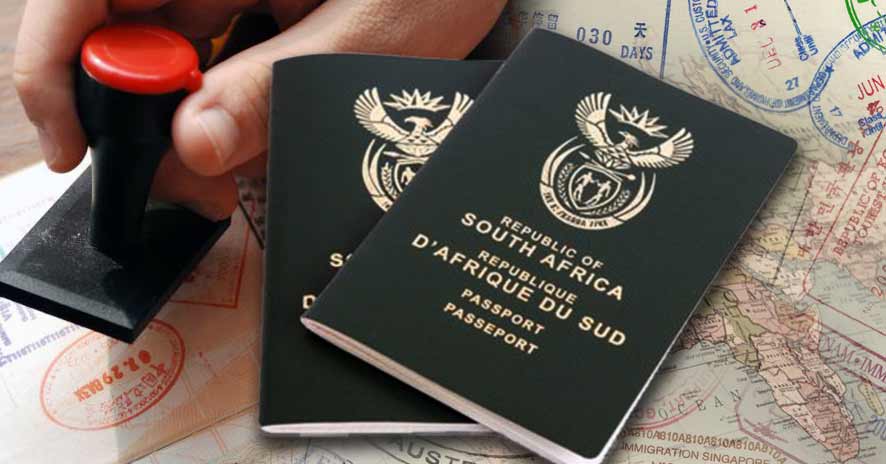Questions about constitutionality of the three-year emigration rule
The introduction of a three-year tax non-resident rule to access to the lump sum withdrawal from retirement annuities and some preservation funds have angered many South Africans who are on the brink of emigration.
Some players in the law and accountancy profession are questioning the constitutionality of the change. However, it is not an easy matter.
Mientjie van der Merwe, specialist independent tax advisor and a former director in National Treasury’s division responsible for drafting pension and tax legislation, says the proposed change deals with access to private savings. She refers to section 25 of the Bill of Rights in the Constitution that deals with property rights. Van der Merwe expressed the concern that with this rule government in effect “locks” your savings into the volatile South African financial landscape long after you broke your South African tax residency.
The change announced in this year’s budget will replace the current financial emigration process for exchange control purposes (that requires approval from the South African Reserve Bank) by a tax residency test (that will rest with the South African Revenue Service). The latter will require South Africans to remain tax non-resident for three or more consecutive years to be allowed to access retirement savings. Only then will they be allowed access to their retirement annuities and preservation funds to cash out as a lump sum prior to retirement. This change will become effective on 1 March 2021.
Van der Merwe says people have been contributing to funds where they were not allowed access to these funds until the rules allowed them access. One of these rules was sanctioned by a formal or financial emigration process with no reference to tax residency periods. In fact, one could avail to this process 60 days before departure from South Africa. “Now the rules of the game are changed to restrict your access beyond the original rules that you accepted as a contributing member of the fund.”
She admits that it will be expensive and difficult to make a case for unconstitutionality. The financially well-to-do have either already emigrated or they generally do not hold a large part of their assets in retirement annuities or preservation funds. The people who are affected are the ones who have most of their assets in these funds and need access to the lump sum to pay for the exit tax that becomes payable as soon as they break South African tax residency. Breaking residency triggers a deemed disposal of all world-wide assets and they will be required to pay capital gains tax on most unrealised gains.
Hugo van Zyl, vice chair of the personal and employment taxes work group at the South African Institute of Tax Professionals (SAIT), says the question of constitutionality has been raised in committee meetings of SAIT and the South African Institute of Chartered Accountants. Expats in non-treaty countries may now face a challenge to convince SARS they are no-longer ordinarily resident. Reducing the financial footprint at the date of departure and not four years later, was often the convincing or final building block to show the intention not to return to SA at the date of retirement. It is basically a right (to access your private savings) that has been unilaterally removed.
When the initial amendment was published in the Draft Taxation Laws Amendment Bill there were threats of class action. However, the concession that those who submit their emigration applications before 28 February next year will have until 28 February 2022 to get approval under the old regime took away some of the anger, says Van Zyl.
Aneria Bouwer, tax partner at law firm Bowmans, says access to preservation funds and retirement annuity funds upon financial emigration (the SARB process) is an exception to the normal rule that these funds could only be accessed on retirement. She notes that tax residence currently does not determine whether you are entitled to a premature withdrawal from a retirement annuity or preservation fund. However, in terms of the amendment, the right to access these funds prior to retirement will be dependent on when you cease to be a tax resident. There is huge unhappiness about the proposal that access will only be granted three years after a taxpayer ceases to be tax resident. “My understanding is that further submissions are being made to National Treasury about the waiting period. One of the arguments in this regard is that people who are emigrating at the moment need access to that cash to pay their taxes, the cost of emigration and the cost of settling abroad. I agree that it is problematic but I do not think it is unconstitutional,” says Bouwer.
Joon Chong, partner at law firm Webber Wentzel, is also not convinced that the three-year rule is unconstitutional. “Any fundamental right can be justifiably limited. My view is that the limitation is probably justified as the financial emigration process will be replaced.”
Van Zyl says impacted parties and service providers should continue to use their professional membership bodies to lobby National Treasury and SARS.
Also read: The three-year rule and what it means for South Africans leaving the country




















